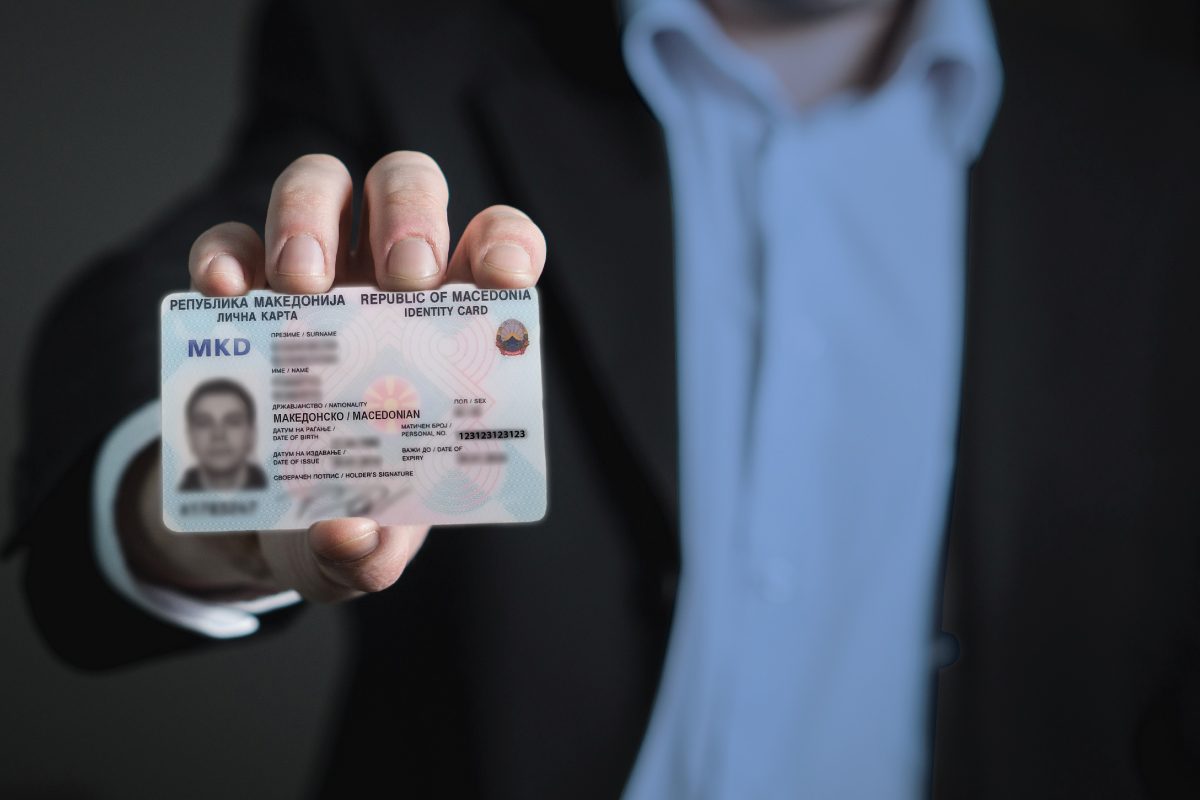The unique citizen identification number, also known as the national identification number, national identity number or national insurance number, is used by the governments of many countries as a means of tracking citizens, permanent residents and temporary residents. The number appears on personal documents issued by the state.
The ways in which the personal identification number is issued vary from country to country, but in most cases citizens are issued a personal identification number after reaching the age of 18 or at birth. Non-citizens may be issued such a number when entering the country or obtaining a temporary or permanent residence permit.
Macedonia uses an identification code with 13 numbers – unique identification number of the citizen (personal identification number of the citizen – EMBG).
According to the Law on Personal Identification Number (“Official Gazette of the Republic of Macedonia” no. 137/13 and 22/16), the unique personal identification number of the citizen is composed of 13 digits (DDMMYYYRRSSSC) divided into six groups:
- Group I: Two digits (DD ) for the day of birth of the citizen;
- Group II: Two digits (MM) for the month of birth;
- Group III: The last three digits (YYY) of the year of birth;
- Group IV: Two digits (RR) as a registration number;
- Group V: Three digits (SSS) as a combination of the citizen’s gender and ordinal number for persons born on the same date;
- Group VI: One digit (C) as a control number;
The double-digit register number depends on the place of birth of the citizens. There are nine registration codes that define the place of birth:
- 41 for the municipalities of Bitola, Demir Hisar and Resen;
- 42 for the municipalities of Kumanovo, Kratovo and Kriva Palanka;
- 43 for the municipalities of Ohrid, Struga, Debar and Kichevo;
- 44 for the municipalities of Prilep, Krushevo and Makedonski Brod;
- 45 for the city of Skopje;
- 46 for the municipalities of Strumica, Valandovo and Radovish;
- 47 for the municipalities of Tetovo and Gostivar;
- 48 for the municipalities of Veles, Gevgelija, Kavadarci and Negotino;
- 49 for the municipalities of Shtip, Berovo, Vinica, Delchevo, Kochani, Probishtip and Sveti Nikole;
The combination of the citizen’s gender and the regular number of births is presented as a 3-digit number – from 000 to 499 for men and from 500 to 999 for women.
The last digit is a computer-generated control digit.
As a basic identification of the citizens, in addition to the personal name, the personal identification number of the citizen is also used.
The personal identification number of the citizen can be processed when performing activities related to health and social protection, insurance, employment, obtaining credit and other credit activities, for establishing a trade company, and other services for the benefit of the personal data subject. The personal identification number of the citizen can be processed for historical and scientific research or statistical purposes.
The processing of the personal identification number of the citizen is performed only on the basis of prior consent of the citizen or under conditions determined by law, because it is an individual unique mark of the citizen’s identification data.
The processing of the personal identification number of the citizen is regulated in the Law on Personal Data Protection, more precisely in Article 83, which stipulates that the personal identification number of the citizen can be processed only with the prior explicit consent of the personal data subject, for exercising the rights or obligations established by law of the personal data subject or the controller and in other cases determined by law.
The controller or the processor is obliged to take care that the personal identification number of the citizen is not unnecessarily visible, printed or downloaded from a collection of personal data.
The personal identification number of the citizen can be systematically and extensively processed only after prior approval by the Agency for Personal Data Protection. This also applies for the following personal data:
- data relating to human health;
- genetic data, unless the data processing is performed by professionals for the needs of preventive medicine, medical diagnosis or care and therapy of the personal data subject;
- biometric data;
According to the Agency for Personal Data Protection, the most common reports when it comes to personal data misuse are aimed at publishing the personal identification number. Therefore, special attention should be paid for what purpose and when the personal identification number is given, because through it the privacy of every citizen can be most easily violated and can be easily abused.
